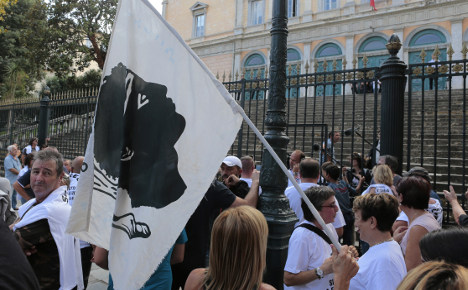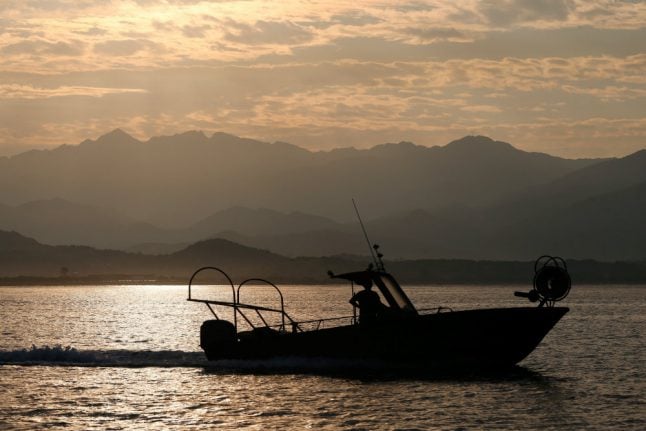A Corsica court sentenced five men to up to two years in prison Friday over a mass beach brawl on the French Mediterranean island, that reportedly began after tourists took pictures of Muslim bathers.
The violence last month in Sisco, in the island's north, left five people injured, prompting the mayor of the village to ban the Islamic burkini swimsuit initially thought to have been at the centre of the row.
Around 100 police were deployed to quell the August 13 clashes between locals and families of North African origin from another part of the island.
The blame for who started the brawl, that according to prosecutors so nearly ended in “tragedy and disaster”, has been difficult to attribute as both sides pointed the finger at the other.
But in court Mustapha Benhaddou, was portrayed as the “spark” and was accused of trying to privatize the cove for his family. He apparently took offense to tourists taking photos from the roadside.
 (The cove where the violent confrontation took place near Sisco. AFP)
(The cove where the violent confrontation took place near Sisco. AFP)
A group of local youths then headed down to the cove and confronted Benhaddou, who admitted slapping one of them. That was the trigger for villagers to descend on the cove for what the prosecutor described as a “collective lynching”.
Benhaddou was sentenced to two years in prison for armed violence, while his brothers Abdelillah and Jamal both received suspended sentences of six months.
Hundreds of people gathered outside the court in Bastia on Thursday to support two local men who faced charges over the incident alongside three brothers of Moroccan origin.
Villagers Lucien Straboni and Pierre Baldi were handed suspended sentences of one year and eight months respectively.
Of the brothers only Mustapha was present in court, the others telling their lawyers they feared for their safety following several anti-Islam demonstrations and attacks on the island.
“There are fractures in French and Corsican society, but those are not what we are dealing with in this case, which concerns a simpler, seedier problem,” prosecutor Nicolas Bessone told the court.
The clashes came amid heightened tension in France after a string of attacks claimed by the Islamic State group, including the July 14 massacre in the southern city of Nice when a Tunisian ploughed a truck into crowds celebrating Bastille Day, killing 86 people.
In Corsica last December, angry protesters vandalised a Muslim prayer hall and trashed copies of the Koran after an assault on firefighters that was blamed on local youths of Arab origin.
Sisco is one of around 30 French towns that have moved to ban the burkini, though the country's top administrative court has suspended the move in most cases.
But the local administrative council ignored the ruling by the council of state and allowed Sisco to keep its burkini ban, saying it was justified on public order grounds — even though prosecutors ruled out any connection between the beach brawl and the full-body swimsuit.
Sisco's mayor Ange-Pierre Vivoni described the court's ruling as “a relief for me and local people”.
He has told AFP that he brought in the ban because he “risked having deaths on my hands”.



 Please whitelist us to continue reading.
Please whitelist us to continue reading.
Member comments